Fastener News Desk ‘In The News’ Live Series with Dirk Beveridge
Live from the FastenerTV Studio…it’s ‘IN THE NEWS’ Live with special guest, Dirk Beveridge.
Watch on Fastener TV: (44:20)

LK: Hello I’m Lisa Kleinhandler, editor in chief at Fastener News Desk.
I’m joined by FND’s editor, Cris Young. Welcome to the premiere episode of Fastener News Desk’s In The News Live Series, where we meet with industry leaders that are moving the needle in distribution forward.
We’d like to welcome our special guest, Dirk Beveridge. Dirk is a visionary entrepreneur and the founder of UnleashWD, the premier design strategy and innovation firm in wholesale distribution. Dirk has been leading major change for over 35 years to advance growth relevance and transformation. He is the producer of the We Supply America Tour, which includes a docu-series, highlighting the noble calling of distribution.
Dirk has authored four books including the best-selling Innovate – How Successful Distributors Lead Change in Disruptive Times. Dirk has most recently released a new report, The Future of Distribution Reimagining Leadership, a call-to-action research report. Dirk is a leading advocate of change and innovation as one of the country’s most outstanding speakers. He delivers a new voice, a new energy, and a new outlook.
Dirk recently delivered the keynote presentation at North America’s largest B2B Expo for fasteners, the International Fastener Expo. We’re happy to introduce Dirk Beveridge to our audience. Now, over to Cris.
CY: Thank you, Lisa. Good afternoon, Dirk, if you would please introduce yourself and share how your passion for distribution was ignited.

DB: Well Cris, introduce myself, I think Lisa just did an amazing job there so there’s not much more to say.
Lisa and Cris, thank you guys so very much and what you do at Fastener News Desk. The way you support the industry, the way you support distribution, the way you support manufacturers. The uncompromising and relentless spreading of news that the two of you do and your team. It’s absolutely remarkable, and so from one person to you all thanks. Thanks for what you do. Thank you, just absolutely fantastic.
As Lisa said, I’m Dirk Beveridge, founder of UnleashWD, executive producer of We Supply America. We’re a design innovation strategy firm that helps distributors remain relevant in this age of rapid change, in this age of disruption. We do that in number of different ways.
Where did my passion for distribution come from? I’m a second-generation business. My father started our business 50 some odd years ago. When Dad was out doing his thing as a consultant and keynote speaker, we had the opportunity to work with a lot of different businesses. The passion in these independent family-owned distribution businesses that I was exposed to early on in my career 30 some odd years ago. Working with organizations like Berlin Packaging out of Chicago, Illinois and Morgan Distribution which was with Anderson Windows at the time. I found that working with these businesses that are the backbone of the country, they had a lot of challenges, and they also had a lot of opportunities in front of them. It just became a passion of mine to embed myself into those businesses to the degree we could help them compete and remain relevant going forward.
CY: That’s pretty cool. I mean, definitely a needed service out there, especially with today’s transformation. Companies not knowing what to do and how to how to be able to bring the company forward and to grow. Kudos to you and your dad in the past for recognizing that and moving it forward.
DB: Thank you.
CY: You just wrapped up the 2022 We Supply America bus tour across the nation. Can you tell us a little bit about your experience and what you’re hearing from the distribution world?
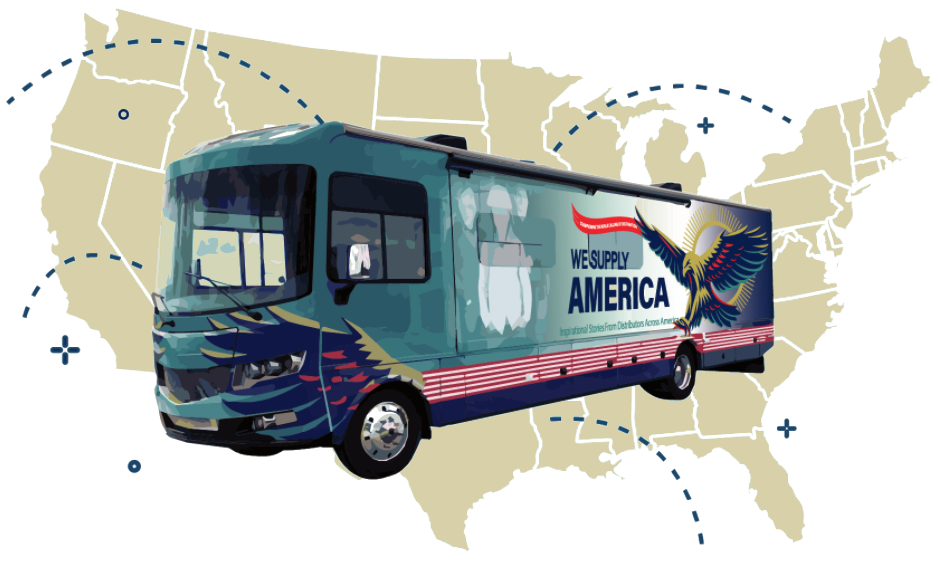 DB: Thanks for asking, so the We Supply America Tour, we just completed the second season of We Supply America. Over the last two summers in the We Supply America RV I traveled over 31,000 miles from sea to shining sea, twice. Visited over 59 different distributors. Hundreds and hundreds and hundreds of individuals that I talk to and with your help and others. We’ve had over one and a half million social impressions on LinkedIn.
DB: Thanks for asking, so the We Supply America Tour, we just completed the second season of We Supply America. Over the last two summers in the We Supply America RV I traveled over 31,000 miles from sea to shining sea, twice. Visited over 59 different distributors. Hundreds and hundreds and hundreds of individuals that I talk to and with your help and others. We’ve had over one and a half million social impressions on LinkedIn.
This really is a movement that is taking hold and an important movement to champion the noble calling of distribution.
What did I learn was the question. So, Cris I learned a couple things. Number one, I learned and was reinforced in terms of the importance of distribution. Truly the backbone of this country, right. If you look at everything we have in our office, everything we have in our home, everything we have in our society. What makes our country our country? What provides our standard of living? What we have come to expect in our way of life has come through the docks of a distributor in one fashion or another. I find that to be noble. The fact that distribution creates over six million jobs in this country. I find that to be very important and I think one of the things I learned about those jobs that have been created as I mentioned 59 Distributors but hundreds and hundreds and hundreds of individuals.
I’ve been on the receiving dock at 6:30 in the morning meeting the pickers and the receivers in the warehouses, meeting the drivers at 6:30 in the morning and on and on. Of those six million jobs that are created what I have learned, maybe one of the most important lessons I’ve learned, is that these jobs that these independent family-owned, employee-owned businesses are creating, they are more than just a job. They provide meaning, purpose, fulfillment for human beings, for people and for families. I think at a time when coming out of Covid, we as individuals are yearning for meaning and for purpose and maybe inspiration. I say look no further than these businesses I’ve had a chance to meet. I think that’s a story that’s very important for these businesses to embrace and to tell because it’s important for their business, for the industry, and I think for our society at large as well. I think another lesson that I learned along those lines is that these businesses are profit driven businesses. I mean profit is obviously critically important to their business but generally speaking what I found is that these businesses again independent family owned, employee-owned businesses, beyond the profit, beyond the products that they sell that are the backbone of this country, these businesses are forces for good in our society.
I talked about the jobs, but you know the leaders of these businesses they’re humble. They are really humble good people and they have their head down and they’re working hard to serve their market and to serve their customers and serve their employees. When you spend time with them and you learn about who they are, and you get not just in their mind, but you get in their hearts, and you allow them to speak from their soul you learn about how they’re supporting the Little League team. You learn about how they’re supporting the United Way in their local community. You learn about the family foundations that they’ve set up for generations to contribute in the ways that are important to their local communities and to their families. You learn about how they are out there. They’ve created schools and foster facilities in countries halfway around the world in Tanzania and the like. Maybe that’s a little different from what your listeners were expecting to hear about the lessons but those are some of the lessons that have touched me, and I think are critically important for all of us.
We are recording this three business days from the midterm elections and at a time when our country is absolutely being torn apart no matter by both sides. When the country is absolutely being torn apart, I say just look no further than inside the four walls of these businesses I’ve seen and look at the force for good that they are. Look at the dignity they provide to their employees. Look at how they connect individuals towards a common cause. Look at the value that they see in the individual. Yes, in the individual.
LK: That’s some important stuff right there, Dirk. I really think that not many people and I think pre-pandemic that was one of our biggest problems. The loyalty was going away from jobs. People were moving from job to job. People want to be recognized. They want to be valued. That’s a human need. I think recognizing this and appreciate your work. I mean that is some really important stuff. To really look. When during the pandemic started the distribution business was made essential. These people went to work for this country right away.
CY: They never really stopped.
LK: Right. They went right into you know just as if they were part of the military. Right into service. Like here I am for my country, not part of the National Guard, part of the distribution world, right.
DB: Right on.
LK: Served. They had still had to go home to their families with their same concerns. I know just from our industry, from what we’ve seen from the companies that treat their employees the best are doing the best.
DB: Without question. Can we build on that?
CY: Yes, absolutely.
DB: Another critical lesson that has come out of both seasons but really zeroed into me with season two is this, to your point Lisa. I believe down to my core that these independent family-owned, employee-owned distribution businesses are perfectly positioned to win the war on talent. Perfectly positioned. When you look at the culture. When you look at the care. When you look at the concern. When you look at the opportunities for the individuals. Certainly, there’s some challenges but when you look at what these businesses have to offer their employees compared to, yes, I’m going to say compared to those companies that are in the news the Googles, the Facebooks, the Amazons, the Apples of the world, we are perfectly positioned to win the war on talent. The challenge is:
- A: We don’t necessarily believe it. We’ve told ourselves; our mindset is that we can’t compete.
- B: We haven’t thought deeply enough in terms of really defining what it is that sets us apart for our employees in terms of our employee value proposition.
- C: We have a hard time articulating. We have a hard time. We’re humble. We have a hard time articulating it and going to market with a little bit of swagger about the opportunities we have for individuals.
This Lisa, you hit upon it, has become a new mission of ours and stay tuned because in January we’re going to be facilitating a think tank around this very topic. About how do we take advantage of this opportunity that we have in front of us. This untapped opportunity being perfectly positioned to win the war on talent.
LK: All right, I love that, Dirk.
CY: Related to that, I would ask, how influential do you think Gen X, Y, Z, is to all of this change in the distribution world, in the workforce and the how we treat our employees kind of thing?
DB: Can I say everything.
CY: Okay yes. I mean tell it like it is.
DB: Because yes, I mean they’re absolutely everything. Look we have a choice, right. We have a, well let me say it this way. Each year I have the Unleash Innovation Summit and in year two I believe it was, I had a speaker who Fortune magazine named as one of the 50 most influential leaders in the world. Right there with the Dalai Lama and Bono and others was George Kennedy, the former head swimming coach for John Hopkins University. I reached out to George and said my God you’re with Bono and Dalai Lama! I must learn from you. Come on in. George Kennedy came to my conference and spoke.
By the way ladies, the first and only speaker on my stage, who stripped on stage. He took off his clothes and got down to his swim trunks because that’s where he said he’s comfortable. He said this on the side.
LK: I love that.
CY: Sorry we missed it.
DB: It was fantastic, and it was perfect. It was perfect and why did I tell you that whole story. George Kennedy told the story about these next generations. He had been coaching for 30 years. He’s been talking about these next generations of student athletes coming in. And what he said was this, Cris this goes to your point.
He says this, I have to prepare them for their world not the world that I came from. I think that says everything about your question how influential are the Gen X, Y, Z’s right. In terms of the change that’s coming and the change that we as leaders in our businesses need to be prepared for and build for. That’s why my answer is everything. Because their world no matter what label we put on the generation, their world is going to be different than my world. That’s going to require new leadership, it’s going to require new paradigms, it’s going to require new ways to market, new ways to communicate, new employee value propositions. It’s going to require new ways to sell. Did I say new ways to communicate? They are causing us to absolutely rethink everything about our businesses.
CY: Well, I’m glad somebody recognizes it and sees that there’s a need to adapt ourselves as the older generation, preparing for what’s coming up.
LK: I think so from the side of being a little bit older than those generations. I think that we’re at a unique point in history where there’s only a certain amount of time that we’ll be able to contribute our knowledge to this next generation. Where we’ll be able to help guide them to have that future that we hoped, or we hope and dream for them to have. Where they have unlimited possibilities in the things that they do. That they don’t have limited thinking and they don’t get to drawn into these boxes or this brick-and-mortar way of thinking that unfortunately and fortunately our generation has come up with. I think that we still have a ton to contribute, and I think my thing with distribution is that the leadership gets a little bit frustrated with the difference in the generations and they don’t know how to approach the new employee, the new needs, the new need to feel part of the company, not just the worker bee in the company. People want to belong. We have to change too. We also have to meet this extraordinary point in history. This is something that we all come together to do this.
DB: Yes, absolutely. I love the thought process that I learned from Don McNeeley who is the Chairman of Chicago Tube and Iron. He said two things, he says number one, “when you’re in a position to lead by all means lead”. and so the second thing he said is “our job as leaders is to lead our teams, our organizations through inflection points”. An inflection point is a point of dramatic change, let’s say in an industry that can either drive positive or negative consequences, right. His whole premise, and I love it, was look in good times anybody can be a leader he says, but the point is you as a leader will face these moments of inflection and he says that is when you get paid to do your job. You weren’t paid just because the business was there. Now it’s time to get paid for doing what you’re being asked to do.
We are in the midst of a serious inflection point in terms of so many things technology, in terms of a societal change, in terms of employees and what they’re going to demand and want in an employer, in terms of customers and how they’re going to be doing business. And so, to your point, this is our moment in time. In leaders this the moment you are called for and this is the moment to not allow yourself to be pulled back to legacy. Honor the past. Yes, learn from the past. Be grateful for those that have come before you to provide the opportunities we have. But understand, that the past is not as important as the future. Our job is to be able to peer into the future to understand how these trends and forces are going to change how we live, work and play. Lead our organizations to that new future.
CY: That will bring me to my next question Dirk. What are some of the innovative ways that you saw companies using to attract new talent and to retain the talent that they have.
DB: Well, I think your listeners when they hear that question, they’re looking for the magic bullet. All right, give me that magic bullet, right. That that’s going to solve this problem and make it go away. Cris and Lisa, there’s no magic bullet. Generally speaking, I think what it comes down to is leaderships’ vision and their culture. Everything else probably revolves around that. Can I give you two examples?
CY: Sure
DB: Bill Condron is the amazing CEO of the Granite Group up in the Northeast near you all. In the plumbing and PVF industry. He was going through his three-year planning cycle and his coach was pushing him “Bill what’s the vision of your company”?
The coach asked if it was that you want to become a billion-dollar company and Bill said no I don’t think so. He asked is it that you want a certain number of branches, a certain number of locations, Bill says no I don’t think so, those are just numbers. Just let me pause for a second and think about that. How inspiring it is to work for a company that’s going to be a billion-dollar company or having many branches. Those are just numbers. What does that mean to me the individual, the employee? Very little. Bill thought about it, and I love what they landed on. The vision at the Granite Group is to become a dynamic durable growth engine for their people. A dynamic durable growth engine for their people.
Listen to what that says and how that translates to your question Cris. About recruiting, right. When a potential employee who is looking for security in their career. That they want to have a job in good and tough times. When they hear that they’re going to go to work potentially for a company that’s creating a durable and dynamic growth engine. What it says is they’re building an organization for sustainability and if my need is security, they’re there. Thinking about the employee who wants to grow and progress in their career. When they hear that they have the potential to go to work for a dynamic durable growth engine for their people to grow for example. What does it say? It’s not a magic wand. It requires a lot of hard work, but when you have a vision that is tied to what’s in it for me as the employee, I think that is a dynamite magnet to attract quality people to you. That’s just one example.
CY: I would have to say that after watching the eight films that you have from season two that was one of the most prominent things that I took away from it. The employees saying first of all, how they love their jobs and how they knew they had room to grow. They found that to be one of the key factors for wanting to show up at work every day.
DB: Without question, and Cris you know, I think to be fair, right. I think when you look at the average distribution business there are positions that allow for a career trajectory of growth, of added responsibility, maybe leadership and management. But then there’s others that we need done and maybe there’s not that type of leadership progression path if you will.
However, those companies that are winning the war on talent they provide meaning and purpose and dignity for every single one of those jobs. I tell you out on the tour Bob was his name. I cannot get out of my mind, Bob up in Plymouth, Minnesota. 35 years with this electrical distributor and he’s been on the receiving dock. He’s been a receiver in the warehouse for 35 years.
LK: Wow.
DB: And you want to know something, he is fulfilled as all get out. He is doing what he was born to do, and he loves it. He is within his unique ability and what he also appreciates is that the company recognizes his value in what he does and recognizes that he is part of this culture and is aligned to where the company is going. All their new hires who are eventually going to become VP’S of the company and the like where do you think they start their training? With Bob of 35 years.
This one other thing I’m passionate about is this. Generally speaking, we’ve done a good job of investing in 20 percent of our workforces. We’ve done a good job of investing in our sales team. We’ve done a good job of investing in those with management potential and leadership potential but the others who do the work, day in and day out, we typically just train them to do their job. Then our focus on their growth, the focus on helping them become better versions of themselves, too often we’ve lost sight of that.
I think going forward that’s going to be a huge opportunity for us as distributors who really care about our people, to think through that, and say what can I do to help individuals grow no matter what role they are in and to grow and become better versions of themselves.
CY: It sounds like the companies where you got to visit; team is a very important term.
DB: Yes
CY: It sounds like those that are going to make it are valuing that team player mentality and focusing on that rather than I’m a leader and you’re the warehouse worker.
DB: Absolutely. Joe Nettemeyer, CEO of Valin Corporation, I love it, he says for us to succeed we have to go from me to we.
LK: Yes, turn the M upside down or whatever the other side up and we’re going to make we out of me.
DB: You betcha.
LK: That’s where we are you know as a whole and I think that the Manufacturing Day movement has been going over the last 10 years or so trying to change the perception of a career in manufacturing. I really think that we need that type of a movement in distribution. We serve just as an important role as the manufacturing community. We also face the similar situation of the change of workforce. The attrition coming and a new workforce coming in and we have to learn, even in distribution, to show the new generations that these jobs are meaningful jobs.
That the gentleman that you just spoke of who has had a 35-year career on the dock and he’s so happy and he loves it. That’s still potentially a great job.
DB: Darn right it is.
LK: But there have been these jobs unfortunately that got a very dirty job perception in society. And now with AI and all of the technologies out there they’re not the same jobs they’re a lot more attractive. They have a lot more potential for growth opportunities. I think we’re just switching things up a little bit and like we were saying, each generation needs to do their part in this to make sure that the outcome at the end of the day is that we’ve passed on the legacies. We’ve passed on the knowledge and now these new folks are ready to take the reins and take us into an even better time in our history.
DB: Without question and two things on that Lisa and Cris. Number one, I remember being on a podcast not too long ago and talking about this noble calling of distribution and the noble calling of these good jobs that we create and provide. I remember the podcast host saying yes Dirk, we’ve got a public relations problem people don’t know about. I pushed back and I said no Jason I don’t think it’s a public relations problem. I think that’s later. I think the problem starts in our own four walls.
I think it starts in our own four walls that we have to remind ourselves and we have to think deeper about, Lisa what you just said, we have to think deeper about the nobleness of every single job the goodness of every single job, the dignity of every single job, and we need to be able to articulate that within these four walls and then we can go outside that’s number one.
Number two is this, here’s a four or five step process that I think your listeners can take to do exactly what you just said. I think if we’re going to elevate the role, every single role in our organization so that we can attract the pickers that we’re going to need, the drivers that we’re going to need, the accounts receivable individuals we’re going to need, and the sales team, if we’re going to do that there’s a success path that I think we need to go through.
- It begins with defining your organizational purpose. Have you been able to articulate your company’s why? The new employees no matter what level of your organization, they’re going to be attracted to companies who are purpose driven and can articulate that purpose, that greater good. You have to be able to articulate that greater good, that purpose, your company’s why. So, number one, you got to do that.
- Once you have that purpose, you have to be able to articulate what I call your organizational character. Here’s what you’ve got to do. You have to define the foundation of your employee value proposition. What is your core belief in terms of people? How do you view people and employees? How do you meet the career aspirations of your employees? How you meet this is something else we’re going to have to talk a lot about. How do you meet the lifestyle aspiration of your employees? Years ago, it was just about the job. Years ago, it was just about the career trajectory. Today going forward, we’re going to have to talk about the lifestyle. About how you support the individual outside of work as well.
Define the organizational purpose. Define your organizational character.
- Then you have to spend time connecting those two things to the individual worker and define individual meaning for the individuals. What’s in it for me. How do you truly make that difference for the individual in their life? Are they looking for security? Are they looking for recognition? Are they looking for belonging? Are they looking to be self-actualized? Everybody has a different set of needs and you’re going to have to be able to share how this job, this role, this company, can help the individual meet what’s driving them personally.
- The fourth thing that we’re going to have to do is, we’re going to have to become better internal and external marketers. We’re going to have to learn to talk about ourselves with a little bit of swagger about the goodness that we have as a job creator in the industry. Then ultimately, you got to put it together and you got to implement a people first strategy going forward.
Using those four pillars to do so.
LK: That’s some good information, Dirk.
CY: Actually, you answered my question, I was going to ask you about the seven ethos that define the noble calling of distribution and you just you just hit it right there. Thank you for that.
LK: Can I just jump in one second. When I was listening to you it almost sounds like when a business wants to go to market with a new product. They come up with some client personas and make sure that they understood the different positions. Here we need employee personas. Each one individually with meaning, with thought, and with leadership, so that we can take those employees, make those offerings and make sure that we’re not just trying to look with tunnel vision. That we’re looking at each individual as a persona themselves, that has meaning. I think if maybe companies took some time to do that, like they do when they’re looking to take a product to market. It would be really beneficial.
DB: 100 percent, Lisa. Great observation. I agree. Don’t get too good consulting.
LK: Lisa all right…I’ve certainly got enough on my plate Dirk.
CY: Switching topics just a little bit, I mean workforce and people are still important here, but you know right now we’re in such I don’t want to call it dire straits but definitely a sense of turmoil out there. In the economy, the supply chain, workforce. These are all concerns of every business owner. What kind of leadership do you think is necessary for a company to have in order to address these issues successfully?
DB: Great question. I believe that strategic planning has always been important but it’s more important than ever
before. If we could, say that distribution is a busy complex and developing strategy is hard. And because it’s hard it’s often unintentionally avoided. We’ll get to that next week, next month, next year.
Without a strategy we are simply reacting to the problems of the day and the problem with reacting to the problems of the day is at best you’re going to remain; you’re going to bring things back to the status quo. There’s no growth. There’s no seizing of opportunity.
Cris and Lisa, I believe that today your readers, your listeners, and your followers need to ask themselves do we spend enough time strategically thinking and planning for our business? You know strategy at one level is very simple to define. Jack Walsh, former CEO of General Electric said strategy is nothing more than picking a general direction and executing like hell. The difficulty is in picking that general direction and so what I would encourage your members, your readers, and listeners to do is this; if they do not have a strategic planning process in place, find one and put it in place.
CY: Yes, absolutely correct. I would agree 100 percent with that. Dirk, we’re going to start wrapping it up but before we do, I’d like you to share with our audience today about your UnleashWD podcast and where they could find you on social media to find out more about your experiences and your programs.
DB: Thanks for asking. Cris let me ask you this. I mean we really found each other because of LinkedIn and all that, right.
CY: Yes, absolutely.
DB: Can you tell the listeners what you think about all of this social media and these films that we’re making, that we’ll talk about.
CY: As I said earlier, I just got through with the last of the eight sessions from the We Supply America Tour season two and I was just blown away by all of it. You can find them at wesupplyamerica.net
DB: Well, done.
CY: I also listen to the podcast on LinkedIn, and I believe that’s every Tuesday.
DB: Every Thursday.
CY: Every Thursday. Sorry about that. Yes, every Thursday and I think the last time I remember it being was at 10 A.M est. Tell me if I’m correct.
DB: 9 A.M Central. Yes, 10 a.m. eastern time.
CY: Okay, also on LinkedIn. That’s also a great opportunity for people to hear Dirk give his words of wisdom and the things, lessons he’s learned, and the experiences he shared with the distribution companies out there on the road. He has a great report, and I just was looking at the I’m not sure, you can refresh me on this one. It starts with I believe.
DB: My manifesto.
CY: Your manifesto, correct.
Dirk‘s ‘I Believe’ manifesto outlines his 34 fundamental beliefs about innovating and winning in the age of rapid change. Click the image to download it now.
DB: Did you just find that?
CY: I just I was looking at all of it this morning…
DB: Keep going.
CY: I thought that was great. That’s the one and then also was the report that Lisa mentioned. Which I don’t know where to find that so if you could tell the people where to find that. That would be great.
DB: Wow, there’s a lot there, Cris. I appreciate it and I got to tell you from the bottom of my heart, thank you. You know it’s always so inspiring, fun, and rewarding when you find like-minded individuals who you can collaborate with. I think that’s what the three of us are. That we’re like-minded souls who want to serve and so I think that’s why we’ve been attracted to each other. For that, I appreciate that and thank the two of you. You hit it and I would love to connect with you all. Let’s start on LinkedIn. You can go to LinkedIn. Google, Dirk Beveridge, and I’m right there. My son is right there as well same name but Dirk Beveridge on LinkedIn. You’ll find our LinkedIn lives and follow everything that we’re doing. The report that you mentioned, Lisa and Cris, I’m real excited about this new research platform that we launched about 60 days ago. It’s going to be a triannual report called The Future of Distribution. And I believe this, that we’ve talked about strategy. I believe that in this world of constant change, this world of uncertainty and complexity, and the exponential change. How do you weed through it all? Well to me, when you weed through what’s going to really define the success of distributors going forward to me it comes down to three pillars.
- Leadership, the capabilities of your leadership team, is going to be the ceiling of how you advance as an organization.
- It’s your people. We must have the right people in our businesses who are going to allow us to grow.
- Our innovation and use of technology.
What we’ve done is, we’ve launched this new research platform called Future of Distribution and we’re going to have a triannual report. The first is on leadership, the second is on people, the third is on innovation. We’re going to have this in-depth research and conversation going for all 12 months on the future of distribution. Get Report.
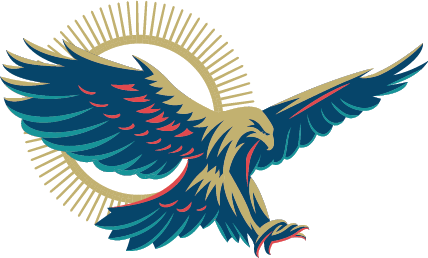 Then our We Supply America Tour. I guess this is pride of ownership but there’s so many good inspirational stories and lessons that you can take into your business as a distribution leader in these videos and reports of We Supply America. You can get that, you’ve mentioned it Cris, at wesupplyamerica.net and now two seasons, 16 different documentary films that are there that you can sit down with your employees. Put one in for 20 minutes and then talk about what did we see. What can we learn from them that they’re doing well in their businesses? What can we take from them into our business?
Then our We Supply America Tour. I guess this is pride of ownership but there’s so many good inspirational stories and lessons that you can take into your business as a distribution leader in these videos and reports of We Supply America. You can get that, you’ve mentioned it Cris, at wesupplyamerica.net and now two seasons, 16 different documentary films that are there that you can sit down with your employees. Put one in for 20 minutes and then talk about what did we see. What can we learn from them that they’re doing well in their businesses? What can we take from them into our business?
Discovering The Noble Generation Of Leadership In Distribution
It’s a great tool. You talked about the importance of collaboration and teaming in your organizations. I have found that these 16 films are great collaboration tools to get people around the table maybe during a lunch and learn internally in your organization. Watch the films and have conversations about them.
LK: That’s a great idea. I just want to say to all of our listeners out there that we’re really excited that you joined us today, Dirk.
As veterans of all of the Tony Robbins programs, I have to say that Dirk Beveridge is the Tony Robbins of distribution. You know how to get out there and to pump the audience up and to get distributors ready for the for the changes that are coming. There are so many resources that you’ve made available to distributors. I hope that all of our listeners and fastener distributors will take note of Dirk Beveridge’s reports and his programs and try to instill some of this in your businesses and I know that you’ll find success if you do so. With that being said, thank you for being our first guest on Fastener News Desk’s In the News Live Series. Thanks to all of our listeners for tuning in and we look forward to speaking to you again real soon Dirk.
DB: Lisa, Cris I’m honored. Thank you so much and as always, it’s been a great conversation.
CY: Thank you.
Innovate To Win. Keynote Presentations with Impact for Forward-Thinking Businesses Navigating the Age of Rapid Change. Get more info about having Dirk Beveridge speak at your 2023 events. Click here.
RELATED CONTENT:
2022 We Supply America Tour Launches in May to Keep Telling Distributors’ Stories
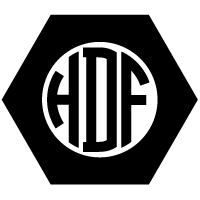
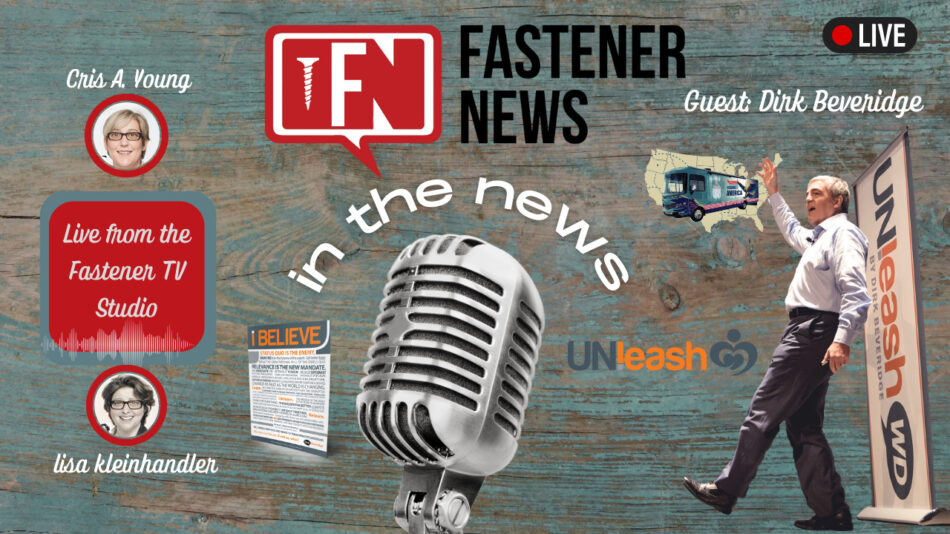

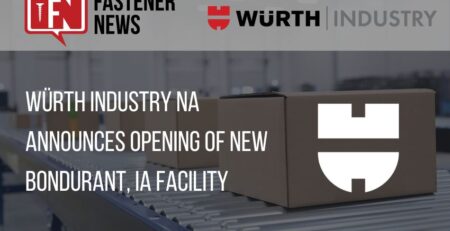





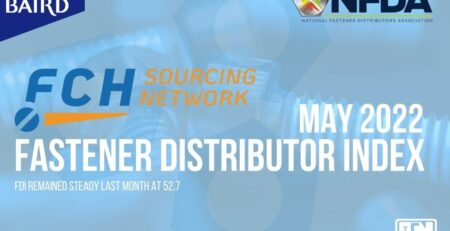


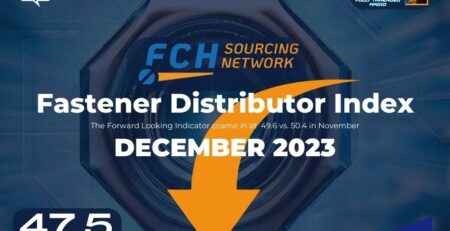

Leave a Reply